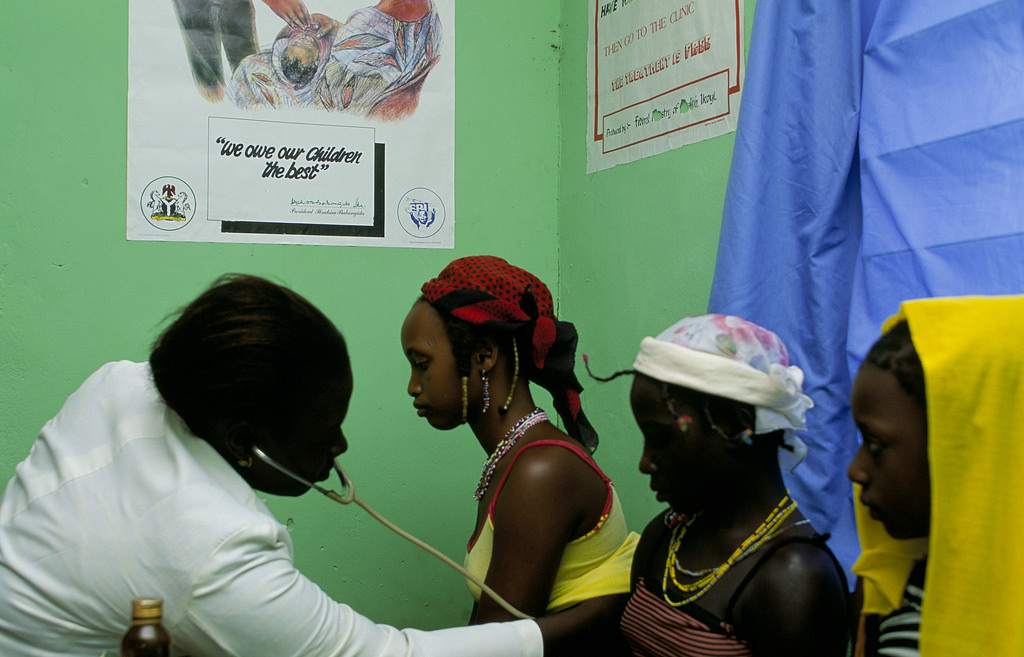“Public health faces new threats in the future”
October 13th, 2016 Science and technology have done much to improve health in recent generations, but Omer Fayshal Pavel, 22, a Correspondent from Dhaka in Bangladesh, argues that new threats to public health have risen and need to be addressed.
Science and technology have done much to improve health in recent generations, but Omer Fayshal Pavel, 22, a Correspondent from Dhaka in Bangladesh, argues that new threats to public health have risen and need to be addressed.
It is the 21th century, the era of science. Technology has made our lives more easy and meaningful, with a future full of advancement.
The point is, what if nobody gets a future with a promising healthy life? Once, people were very afraid of different diseases and died from them. The numbers were not negligible at all. We are advanced; now we know how to avoid contamination, how to keep personal hygiene and how to treat the diseases that are often affecting us.
But did we notice the silent threat which will cause massive deaths in future? Yes, we are in deadly threat in the sector of public health.
The point can be noticed in different health agencies’ reports. In 2008, the World Health Organization (WHO) reported on individual health sectors, but now in 2016 it is reporting on collective health issues. It does mean we have overcome the micro issues in the sector of life, but it also means now we are going to deal with the macro issues of it.
Now we come to the data that will surprise you! In recent years, we had 40 diseases that were not recorded in previous generations, and more than 1100 epidemic events verified by the World Health Organization. At the same time, re-occurrence of some deadly diseases was noticed. Besides that, we can’t ignore the issue of antibiotic resistance.
We know the health sector is directly connected with the economic and political stability of a nation. If we take the emergence of Zika as an example, it had a devastating effect on the tourism sector of Brazil and cancelled transportation from other countries, hampering many foreign business meetings and exchanges at that time.
Investment in outbreak control and surveillance infrastructure was also impacted by the Zika outbreak. Funding for studying dengue increased from BRL $947.7 million in 2012 to $1.25 billion in 2015, but now the funding is going to increase more to study on Zika.
It was not only the economic impact of Zika, but it could also hamper other aspects of Brazil’s future if immediate steps were not taken. Recently the Brazil government and other health agencies have advised women to postpone pregnancies for six months to two years. It is a challenge in population growth in the future, including the babies born with microcephaly due to the Zika virus, who are not able to use their cognitive ability in the future.
Then comes the new and re-emerging infectious diseases. We all heard about the multi drug resistance bacteria. During the G7 summit in 2016, David Cameron, then-Prime Minister of the United Kingdom, focused on microbial resistance and claimed different cases found which are not treatable with existing antibiotics. On this issue the WHO stated, “Many common infections will no longer have a cure and, once again, could kill unabated”, while the US Centers of Disease Control has claimed it a “nightmare” bacteria.
We can’t forget the incidence of 2011 in the US, when letters with anthrax came to the people and spread out of this deadly bacteria. According to WHO data, in 1986 more than 1700 people died of carbon dioxide poisoning in Central Africa. In the same year, the most infamous accident in the history of nuclear power occurred in Eastern Europe. In 2006, dumping of 500 tons of petrochemical waste made nearly 90 000 people seek medical help in West Africa. These all were accidental or deliberate public health disasters.
Since 2010 the situation relates to epidemic-prone diseases. We are now in such state where we have to deal with Ebola, Zika, Yellow Fever, SARS, AIDS, Marburg hemorrhagic fever, Nipah, highly resistant TB and so on. It is not only in nature but included also in politics, as a bio-weapon of war and in extremism as bio-terrorism.
This is the recent situation, but we need not be afraid. We have experience dealing with nature since the beginning of the human era. It is very clear to us that there is more than hand washing or personal hygiene in the health sector. Awareness does mean gathering and sharing the updated knowledge.
We need to make people acknowledge that antibiotic resistance is the result of our own mismanagement of medicine, different virus or disease are the result of accidental outbreaks, and other reasons working behind destruction of the health sector. We also need to develop infrastructure from national platforms so that we can overcome these threats to public health.
Photo credit: World Bank Photo Collection Doctor examines patients via photopin (license)
…………………………………………………………………………………………………………………
About me: I am from Bangladesh, where overpopulation has created issues that reduce environmental quality and the health status of residents. Because of the different unexpected health challenges developing, my ambition is to overcome these problems by making a network of youths and working as a public health professional in future.
I like to visit different places with different traditions and taste different foods. Right now I am a student of pharmaceutical science and a health columnist in national newspapers.
…………………………………………………………………………………………………………………
Opinions expressed in this article are those of the author and do not necessarily represent the views of the Commonwealth Youth Programme. Articles are published in a spirit of dialogue, respect and understanding. If you disagree, why not submit a response?
To learn more about becoming a Commonwealth Correspondent please visit: http://www.yourcommonwealth.org/submit-articles/
…………………………………………………………………………………………………………………






